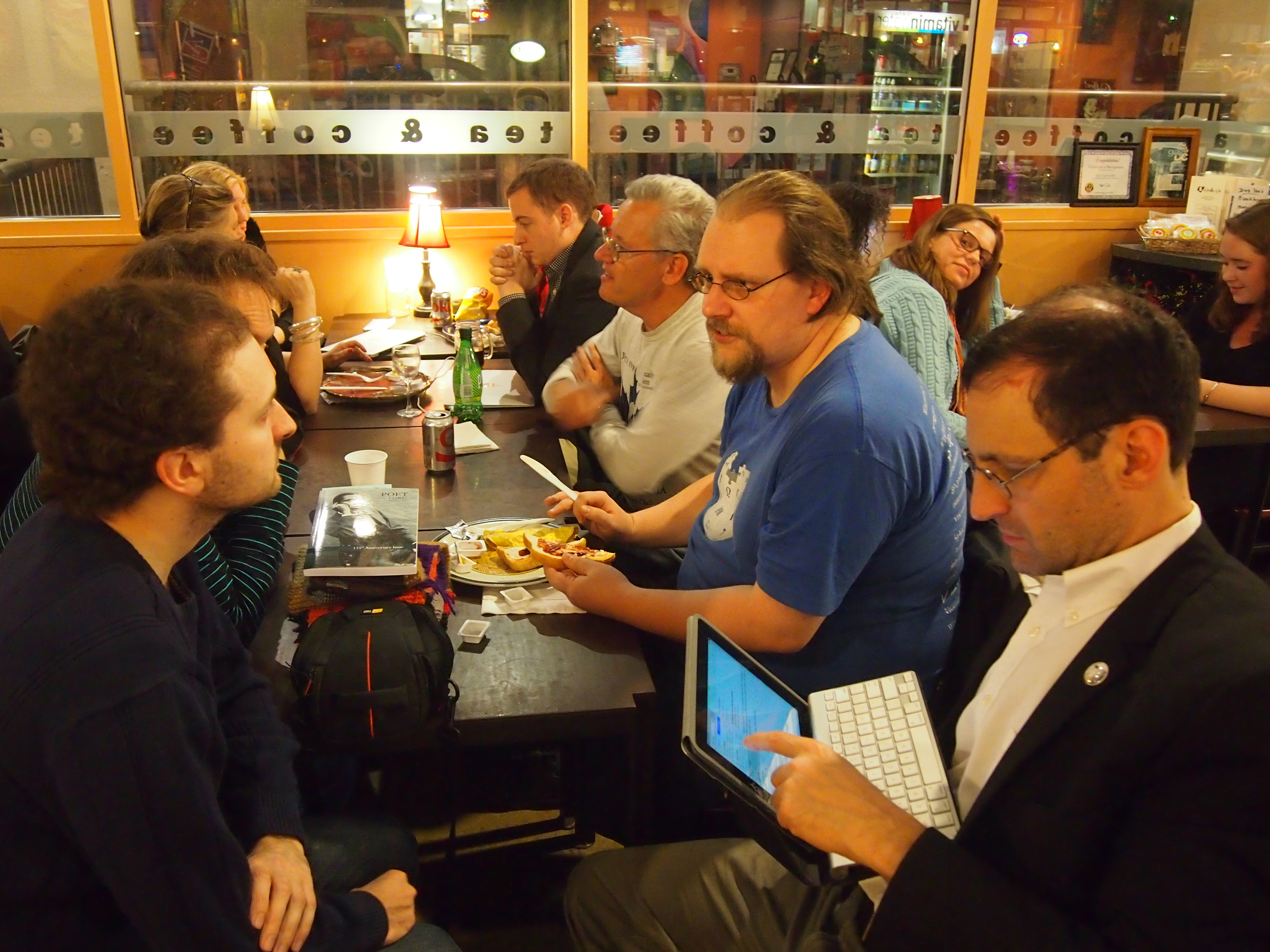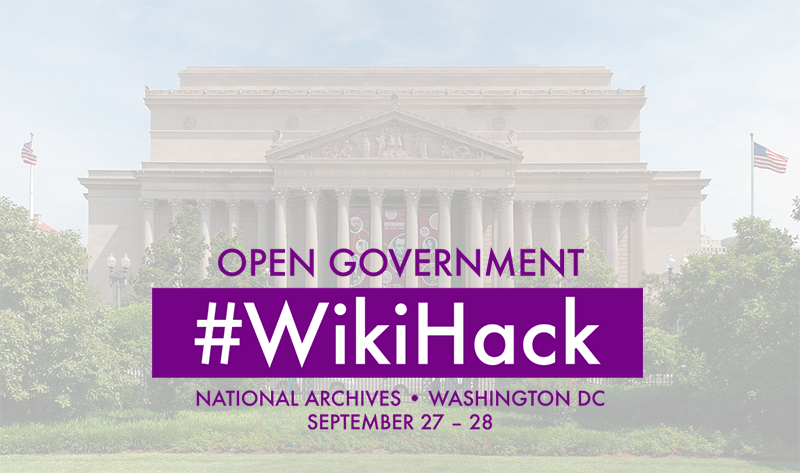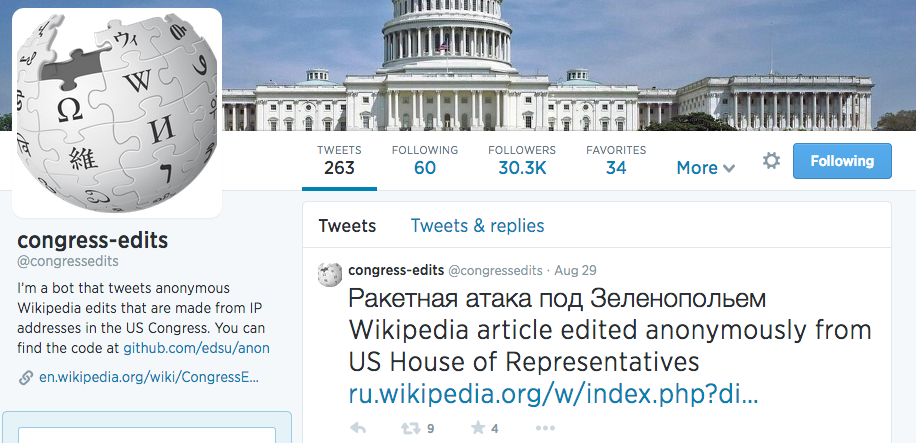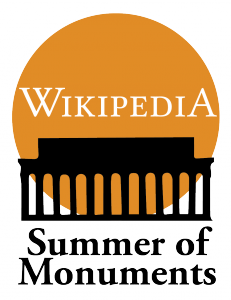Happy New Year! Meetups in January
Posted by James on January 4th, 2015

Happy New Year from Wikimedia DC!
I am pleased to announce that Wikimedia DC has a new schedule of standing meetups: WikiSalons will be held on the second Wednesday of each month, while dinner meetups will be held on the last Saturday of each month. This schedule is in effect through December. We adopted this new standing schedule to make planning events easier. We will also announce other events throughout the year, including more edit-a-thons, so be sure to check the schedule often! You can find the latest schedule on the DC meetup page on Wikipedia.
Coming up in January we have two meetups: the WikiSalon on January 14 at 7 PM and the dinner meetup at Vapiano on January 31 at 6 PM. We hope to see you at our events!
As usual, if you have any questions or request any special accommodations, feel free to email [email protected] and we will be happy to help.
Happy New Year from Wikimedia DC!
I am pleased to announce that Wikimedia DC has a new schedule of standing meetups: WikiSalons will be held on the second Wednesday of each month, while dinner meetups will be held on the last Saturday of each month. This schedule is in effect through December. We adopted this new standing schedule to make planning events easier. We will also announce other events throughout the year, including more edit-a-thons, so be sure to check the schedule often! You can find the latest schedule on the DC meetup page on Wikipedia.
Coming up in January we have two meetups: the WikiSalon on January 14 at 7 PM and the dinner meetup at Vapiano on January 31 at 6 PM. We hope to see you at our events!
As usual, if you have any questions or request any special accommodations, feel free to email [email protected] and we will be happy to help.




